afterLoad (456.16KB) (3.68ms)
afterInitialise (1.27MB) (55.47ms)
afterRoute (870.38KB) (21.56ms)
beforeRenderComponent com_tags (20.38KB) (690μs)
afterRenderComponent com_tags (1.71MB) (150ms)
afterDispatch (25.27KB) (7.48ms)
beforeRenderRawModule mod_articles_category (READ MORE...) (372.12KB) (14.44ms)
Before Access::preloadComponents (all components) (56.7KB) (2.61ms)
After Access::preloadComponents (all components) (103.05KB) (2.04ms)
Before Access::getAssetRules (id:8 name:com_content) (840B) (19μs)
After Access::getAssetRules (id:8 name:com_content) (7.05KB) (45μs)
afterRenderRawModule mod_articles_category (READ MORE...) (6.33KB) (271ms)
beforeRenderRawModule mod_tags_popular (Search) (4.81KB) (27μs)
afterRenderRawModule mod_tags_popular (Search) (1.66KB) (139ms)
beforeRenderRawModule mod_custom (Remember to download Heart Healthy Seniors) (816B) (28μs)
afterRenderRawModule mod_custom (Remember to download Heart Healthy Seniors) (4.86KB) (221μs)
beforeRenderRawModule mod_custom (Get additionel and more detailed knowledge ) (752B) (22μs)
afterRenderRawModule mod_custom (Get additionel and more detailed knowledge ) (1.67KB) (29μs)
beforeRenderRawModule mod_custom (BOOST YOUR IMMUNE DEFENSE) (608B) (10μs)
afterRenderRawModule mod_custom (BOOST YOUR IMMUNE DEFENSE) (928B) (22μs)
beforeRenderRawModule mod_custom (Are you taking supplements) (736B) (10μs)
afterRenderRawModule mod_custom (Are you taking supplements) (1.03KB) (19μs)
beforeRenderRawModule mod_custom (Antiaging) (720B) (9μs)
afterRenderRawModule mod_custom (Antiaging) (1.02KB) (1.12ms)
beforeRenderRawModule mod_custom (Exercise) (720B) (23μs)
afterRenderRawModule mod_custom (Exercise) (1.02KB) (34μs)
beforeRenderRawModule mod_custom (Check this before you buy a Q10 product) (752B) (17μs)
afterRenderRawModule mod_custom (Check this before you buy a Q10 product) (944B) (25μs)
beforeRenderRawModule mod_custom (Chronic fatigue tied Alan to his bed but Q10 capsules saved him:) (245.53KB) (4.51ms)
afterRenderRawModule mod_custom (Chronic fatigue tied Alan to his bed but Q10 capsules saved him:) (960B) (42μs)
beforeRenderModule mod_custom (Chronic fatigue tied Alan to his bed but Q10 capsules saved him:) (768B) (5μs)
afterRenderModule mod_custom (Chronic fatigue tied Alan to his bed but Q10 capsules saved him:) (1.3KB) (68μs)
beforeRenderRawModule mod_custom (Cholesterol-lowering without side effects:) (368B) (13μs)
afterRenderRawModule mod_custom (Cholesterol-lowering without side effects:) (2.19KB) (24μs)
beforeRenderModule mod_custom (Cholesterol-lowering without side effects:) (752B) (2μs)
afterRenderModule mod_custom (Cholesterol-lowering without side effects:) (1.28KB) (29μs)
beforeRenderModule mod_articles_category (READ MORE...) (21.32KB) (1.43ms)
afterRenderModule mod_articles_category (READ MORE...) (1.25KB) (64μs)
beforeRenderModule mod_tags_popular (Search) (5.17KB) (14μs)
afterRenderModule mod_tags_popular (Search) (1.27KB) (26μs)
beforeRenderModule mod_custom (Remember to download Heart Healthy Seniors) (1.17KB) (11μs)
afterRenderModule mod_custom (Remember to download Heart Healthy Seniors) (1.3KB) (22μs)
beforeRenderModule mod_custom (Get additionel and more detailed knowledge ) (368B) (10μs)
afterRenderModule mod_custom (Get additionel and more detailed knowledge ) (1.3KB) (22μs)
beforeRenderModule mod_custom (BOOST YOUR IMMUNE DEFENSE) (224B) (9μs)
afterRenderModule mod_custom (BOOST YOUR IMMUNE DEFENSE) (1.28KB) (20μs)
beforeRenderModule mod_custom (Are you taking supplements) (352B) (9μs)
afterRenderModule mod_custom (Are you taking supplements) (1.28KB) (20μs)
beforeRenderModule mod_custom (Antiaging) (336B) (8μs)
afterRenderModule mod_custom (Antiaging) (1.27KB) (21μs)
beforeRenderModule mod_custom (Exercise) (336B) (9μs)
afterRenderModule mod_custom (Exercise) (1.25KB) (20μs)
beforeRenderModule mod_custom (Check this before you buy a Q10 product) (352B) (9μs)
afterRenderModule mod_custom (Check this before you buy a Q10 product) (1.28KB) (21μs)
beforeRenderRawModule mod_menu (Main menu-US) (20.94KB) (1.66ms)
afterRenderRawModule mod_menu (Main menu-US) (152.66KB) (2.45ms)
beforeRenderModule mod_menu (Main menu-US) (720B) (5μs)
afterRenderModule mod_menu (Main menu-US) (4.36KB) (57μs)
beforeRenderRawModule mod_languages (Sprogskift) (3.44KB) (17μs)
afterRenderRawModule mod_languages (Sprogskift) (26.74KB) (2.56ms)
beforeRenderModule mod_languages (Sprogskift) (720B) (5μs)
afterRenderModule mod_languages (Sprogskift) (5.31KB) (21μs)
beforeRenderRawModule mod_finder () (6.34KB) (11μs)
afterRenderRawModule mod_finder () (219.66KB) (6.2ms)
beforeRenderModule mod_finder () (704B) (5μs)
afterRenderModule mod_finder () (5.79KB) (34μs)
beforeRenderRawModule mod_custom () (6.62KB) (138μs)
afterRenderRawModule mod_custom () (23.13KB) (873μs)
beforeRenderModule mod_custom () (704B) (6μs)
afterRenderModule mod_custom () (1.23KB) (54μs)
beforeRenderRawModule mod_menu (Main menu-US) (5.07KB) (103μs)
afterRenderRawModule mod_menu (Main menu-US) (5.8KB) (642μs)
beforeRenderModule mod_menu (Main menu-US) (720B) (4μs)
afterRenderModule mod_menu (Main menu-US) (1.25KB) (44μs)
beforeRenderRawModule mod_languages (Sprogskift Mobil) (912B) (16μs)
afterRenderRawModule mod_languages (Sprogskift Mobil) (3.89KB) (2.71ms)
beforeRenderModule mod_languages (Sprogskift Mobil) (720B) (6μs)
afterRenderModule mod_languages (Sprogskift Mobil) (1.27KB) (38μs)
beforeRenderRawModule mod_finder () (2.3KB) (12μs)
afterRenderRawModule mod_finder () (6.29KB) (2.19ms)
beforeRenderModule mod_finder () (704B) (4μs)
afterRenderModule mod_finder () (1.23KB) (47μs)
beforeRenderRawModule mod_custom () (8.66KB) (179μs)
afterRenderRawModule mod_custom () (904B) (148μs)
beforeRenderModule mod_custom () (704B) (3μs)
afterRenderModule mod_custom () (2.43KB) (25μs)
beforeRenderRawModule mod_custom () (688B) (79μs)
afterRenderRawModule mod_custom () (896B) (1.15ms)
beforeRenderModule mod_custom () (704B) (5μs)
afterRenderModule mod_custom () (2.71KB) (33μs)
afterRender (300.21KB) (11.79ms)
| 1 x afterRenderRawModule mod_articles_category (READ MORE...) (6.33KB) (38%) | 271.03ms |
| 1 x afterRenderComponent com_tags (1.71MB) (21.09%) | 150.42ms |
| 1 x afterRenderRawModule mod_tags_popular (Search) (1.66KB) (19.47%) | 138.90ms |
| 1 x afterInitialise (1.27MB) (7.78%) | 55.47ms |
| 1 x afterRoute (870.38KB) (3.02%) | 21.56ms |
| 1 x beforeRenderRawModule mod_articles_category (READ MORE...) (372.12KB) (2.02%) | 14.44ms |
| 1 x afterRender (300.21KB) (1.65%) | 11.79ms |
| 1 x afterDispatch (25.27KB) (1.05%) | 7.48ms |
| 1 x afterRenderRawModule mod_finder () (219.66KB) (0.87%) | 6.20ms |
| 1 x beforeRenderRawModule mod_custom (Chronic fatigue tied Alan to his bed but Q10 capsules saved him:) (245.53KB) (0.63%) | 4.51ms |
| 1 x afterLoad (456.16KB) (0.52%) | 3.68ms |
| 1 x afterRenderRawModule mod_languages (Sprogskift Mobil) (3.89KB) (0.38%) | 2.71ms |
| 1 x Before Access::preloadComponents (all components) (56.7KB) (0.37%) | 2.61ms |
| 1 x afterRenderRawModule mod_languages (Sprogskift) (26.74KB) (0.36%) | 2.56ms |
| 1 x afterRenderRawModule mod_menu (Main menu-US) (152.66KB) (0.34%) | 2.45ms |
| 1 x afterRenderRawModule mod_finder () (6.29KB) (0.31%) | 2.19ms |
| 1 x After Access::preloadComponents (all components) (103.05KB) (0.29%) | 2.04ms |
| 1 x beforeRenderRawModule mod_menu (Main menu-US) (20.94KB) (0.23%) | 1.66ms |
| 1 x beforeRenderModule mod_articles_category (READ MORE...) (21.32KB) (0.2%) | 1.43ms |
| 1 x afterRenderRawModule mod_custom () (896B) (0.16%) | 1.15ms |
| 1 x afterRenderRawModule mod_custom (Antiaging) (1.02KB) (0.16%) | 1.12ms |
| 1 x afterRenderRawModule mod_custom () (23.13KB) (0.12%) | 873μs |
| 1 x beforeRenderComponent com_tags (20.38KB) (0.1%) | 690μs |
| 1 x afterRenderRawModule mod_menu (Main menu-US) (5.8KB) (0.09%) | 642μs |
| 1 x afterRenderRawModule mod_custom (Remember to download Heart Healthy Seniors) (4.86KB) (0.03%) | 221μs |
| 1 x beforeRenderRawModule mod_custom () (8.66KB) (0.03%) | 179μs |
| 1 x afterRenderRawModule mod_custom () (904B) (0.02%) | 148μs |
| 1 x beforeRenderRawModule mod_custom () (6.62KB) (0.02%) | 138μs |
| 1 x beforeRenderRawModule mod_menu (Main menu-US) (5.07KB) (0.01%) | 103μs |
| 1 x beforeRenderRawModule mod_custom () (688B) (0.01%) | 79μs |
| 1 x afterRenderModule mod_custom (Chronic fatigue tied Alan to his bed but Q10 capsules saved him:) (1.3KB) (0.01%) | 68μs |
| 1 x afterRenderModule mod_articles_category (READ MORE...) (1.25KB) (0.01%) | 64μs |
| 1 x afterRenderModule mod_menu (Main menu-US) (4.36KB) (0.01%) | 57μs |
| 1 x afterRenderModule mod_custom () (1.23KB) (0.01%) | 54μs |
| 1 x afterRenderModule mod_finder () (1.23KB) (0.01%) | 47μs |
| 1 x After Access::getAssetRules (id:8 name:com_content) (7.05KB) (0.01%) | 45μs |
| 1 x afterRenderModule mod_menu (Main menu-US) (1.25KB) (0.01%) | 44μs |
| 1 x afterRenderRawModule mod_custom (Chronic fatigue tied Alan to his bed but Q10 capsules saved him:) (960B) (0.01%) | 42μs |
| 1 x afterRenderModule mod_languages (Sprogskift Mobil) (1.27KB) (0.01%) | 38μs |
| 1 x afterRenderRawModule mod_custom (Exercise) (1.02KB) (0%) | 34μs |
| 1 x afterRenderModule mod_finder () (5.79KB) (0%) | 34μs |
| 1 x afterRenderModule mod_custom () (2.71KB) (0%) | 33μs |
| 1 x afterRenderRawModule mod_custom (Get additionel and more detailed knowledge ) (1.67KB) (0%) | 29μs |
| 1 x afterRenderModule mod_custom (Cholesterol-lowering without side effects:) (1.28KB) (0%) | 29μs |
| 1 x beforeRenderRawModule mod_custom (Remember to download Heart Healthy Seniors) (816B) (0%) | 28μs |
| 1 x beforeRenderRawModule mod_tags_popular (Search) (4.81KB) (0%) | 27μs |
| 1 x afterRenderModule mod_tags_popular (Search) (1.27KB) (0%) | 26μs |
| 1 x afterRenderRawModule mod_custom (Check this before you buy a Q10 product) (944B) (0%) | 25μs |
| 1 x afterRenderModule mod_custom () (2.43KB) (0%) | 25μs |
| 1 x afterRenderRawModule mod_custom (Cholesterol-lowering without side effects:) (2.19KB) (0%) | 24μs |
| 1 x beforeRenderRawModule mod_custom (Exercise) (720B) (0%) | 23μs |
| 1 x beforeRenderRawModule mod_custom (Get additionel and more detailed knowledge ) (752B) (0%) | 22μs |
| 1 x afterRenderRawModule mod_custom (BOOST YOUR IMMUNE DEFENSE) (928B) (0%) | 22μs |
| 1 x afterRenderModule mod_custom (Remember to download Heart Healthy Seniors) (1.3KB) (0%) | 22μs |
| 1 x afterRenderModule mod_custom (Get additionel and more detailed knowledge ) (1.3KB) (0%) | 22μs |
| 1 x afterRenderModule mod_custom (Antiaging) (1.27KB) (0%) | 21μs |
| 1 x afterRenderModule mod_custom (Check this before you buy a Q10 product) (1.28KB) (0%) | 21μs |
| 1 x afterRenderModule mod_languages (Sprogskift) (5.31KB) (0%) | 21μs |
| 1 x afterRenderModule mod_custom (BOOST YOUR IMMUNE DEFENSE) (1.28KB) (0%) | 20μs |
| 1 x afterRenderModule mod_custom (Are you taking supplements) (1.28KB) (0%) | 20μs |
| 1 x afterRenderModule mod_custom (Exercise) (1.25KB) (0%) | 20μs |
| 1 x Before Access::getAssetRules (id:8 name:com_content) (840B) (0%) | 19μs |
| 1 x afterRenderRawModule mod_custom (Are you taking supplements) (1.03KB) (0%) | 19μs |
| 1 x beforeRenderRawModule mod_custom (Check this before you buy a Q10 product) (752B) (0%) | 17μs |
| 1 x beforeRenderRawModule mod_languages (Sprogskift) (3.44KB) (0%) | 17μs |
| 1 x beforeRenderRawModule mod_languages (Sprogskift Mobil) (912B) (0%) | 16μs |
| 1 x beforeRenderModule mod_tags_popular (Search) (5.17KB) (0%) | 14μs |
| 3 x beforeRenderModule mod_custom () (704B) (0%) | 14μs |
| 1 x beforeRenderRawModule mod_custom (Cholesterol-lowering without side effects:) (368B) (0%) | 13μs |
| 1 x beforeRenderRawModule mod_finder () (2.3KB) (0%) | 12μs |
| 1 x beforeRenderModule mod_custom (Remember to download Heart Healthy Seniors) (1.17KB) (0%) | 11μs |
| 1 x beforeRenderRawModule mod_finder () (6.34KB) (0%) | 11μs |
| 1 x beforeRenderRawModule mod_custom (BOOST YOUR IMMUNE DEFENSE) (608B) (0%) | 10μs |
| 1 x beforeRenderRawModule mod_custom (Are you taking supplements) (736B) (0%) | 10μs |
| 1 x beforeRenderModule mod_custom (Get additionel and more detailed knowledge ) (368B) (0%) | 10μs |
| 1 x beforeRenderRawModule mod_custom (Antiaging) (720B) (0%) | 9μs |
| 1 x beforeRenderModule mod_custom (BOOST YOUR IMMUNE DEFENSE) (224B) (0%) | 9μs |
| 1 x beforeRenderModule mod_custom (Are you taking supplements) (352B) (0%) | 9μs |
| 1 x beforeRenderModule mod_custom (Exercise) (336B) (0%) | 9μs |
| 1 x beforeRenderModule mod_custom (Check this before you buy a Q10 product) (352B) (0%) | 9μs |
| 2 x beforeRenderModule mod_finder () (704B) (0%) | 9μs |
| 2 x beforeRenderModule mod_menu (Main menu-US) (720B) (0%) | 9μs |
| 1 x beforeRenderModule mod_custom (Antiaging) (336B) (0%) | 8μs |
| 1 x beforeRenderModule mod_languages (Sprogskift Mobil) (720B) (0%) | 6μs |
| 1 x beforeRenderModule mod_custom (Chronic fatigue tied Alan to his bed but Q10 capsules saved him:) (768B) (0%) | 5μs |
| 1 x beforeRenderModule mod_languages (Sprogskift) (720B) (0%) | 5μs |
| 1 x beforeRenderModule mod_custom (Cholesterol-lowering without side effects:) (752B) (0%) | 2μs |
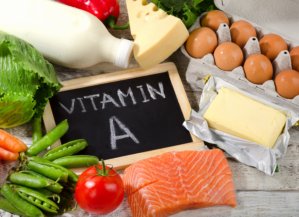 Lack of dietary vitamin A increases the risk of skin infections and acne. Science has known for a long time that creams with synthetic vitamin A can be used against various skin problems, yet they do not know how vitamin A really works. Now, a study conducted by scientists from UT Southwestern Medical Center in Texas, USA, reveals the underlying mechanisms by identifying a bactericidal skin protein that requires vitamin A in order to work. But what kind of vitamin is vitamin A really? When does it work optimally? And is there in fact vitamin A in carrots?
Lack of dietary vitamin A increases the risk of skin infections and acne. Science has known for a long time that creams with synthetic vitamin A can be used against various skin problems, yet they do not know how vitamin A really works. Now, a study conducted by scientists from UT Southwestern Medical Center in Texas, USA, reveals the underlying mechanisms by identifying a bactericidal skin protein that requires vitamin A in order to work. But what kind of vitamin is vitamin A really? When does it work optimally? And is there in fact vitamin A in carrots?







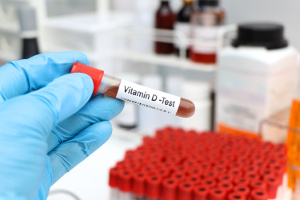 Melanoma is a type of malignant skin cancer that spreads rapidly. Being vitamin D-deficient doubles the risk of dying of the disease, according to a Spanish study that was presented at the European Academy of Dermatology and Venereology congress. It is commonly known that sunburns, which one should generally avoid, increase the risk of contracting skin cancer. But we must not forget that the summer sun is our main source of vitamin D and at our latitude, it necessary to take a vitamin D supplement in the wintertime. People who avoid the sun or have difficulty with synthesizing vitamin D in their skin should take a supplement all year round.
Melanoma is a type of malignant skin cancer that spreads rapidly. Being vitamin D-deficient doubles the risk of dying of the disease, according to a Spanish study that was presented at the European Academy of Dermatology and Venereology congress. It is commonly known that sunburns, which one should generally avoid, increase the risk of contracting skin cancer. But we must not forget that the summer sun is our main source of vitamin D and at our latitude, it necessary to take a vitamin D supplement in the wintertime. People who avoid the sun or have difficulty with synthesizing vitamin D in their skin should take a supplement all year round.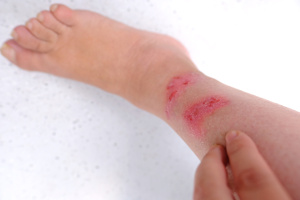 Poor wound healing, a somewhat common and well-known problem, especially among hospital patients, is associated with huge health costs. Proper wound healing is contingent upon on the presence of different nutrients, and it appears that the ratio between omega-3 and omega-6 fatty acids is particularly important. This was demonstrated in a new study of rats, where higher intake of omega-3 at the expense of omega-6 turned out to have the best effect on the formation of new blood vessels, increased collagen synthesis, and faster wound healing. In the study, which is published in Nutrients, the authors look closer at the fact that modern diets typically contain too much omega-6 and too little omega-3, and this contributes to problems such as cardiovascular disease, overweight, diabetes, and other lifestyle diseases.
Poor wound healing, a somewhat common and well-known problem, especially among hospital patients, is associated with huge health costs. Proper wound healing is contingent upon on the presence of different nutrients, and it appears that the ratio between omega-3 and omega-6 fatty acids is particularly important. This was demonstrated in a new study of rats, where higher intake of omega-3 at the expense of omega-6 turned out to have the best effect on the formation of new blood vessels, increased collagen synthesis, and faster wound healing. In the study, which is published in Nutrients, the authors look closer at the fact that modern diets typically contain too much omega-6 and too little omega-3, and this contributes to problems such as cardiovascular disease, overweight, diabetes, and other lifestyle diseases.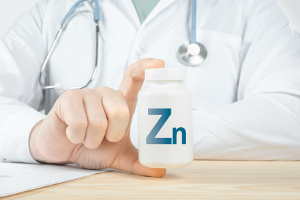 Over the past decades, it has been common practice to use zinc in creams and salves for treating various skin disorders. Zinc has wound-healing, antibiotic, and anti-inflammatory properties that make it useful for such purposes. In a review article that is published in International Journal of Molecular Sciences, the authors look closer at zinc’s role in skin health. They also look at whether zinc supplementation may positively affect eczema, acne, psoriasis, herpes, and other skin diseases. The authors also address the fact that around one third of the world’s population is zinc-deficient.
Over the past decades, it has been common practice to use zinc in creams and salves for treating various skin disorders. Zinc has wound-healing, antibiotic, and anti-inflammatory properties that make it useful for such purposes. In a review article that is published in International Journal of Molecular Sciences, the authors look closer at zinc’s role in skin health. They also look at whether zinc supplementation may positively affect eczema, acne, psoriasis, herpes, and other skin diseases. The authors also address the fact that around one third of the world’s population is zinc-deficient.
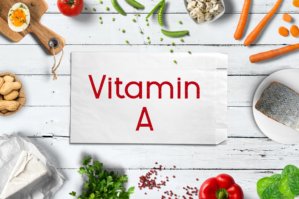 Those with a higher dietary intake of vitamin A than what is officially recommended are 17 percent less likely to develop the second-most common skin cancer compared with those who get limited quantities of the nutrient, according to a study from Brown University in the USA. Beware that vitamin A is found in different forms in various foods and that one of these forms (retinol) can be overdosed.
Those with a higher dietary intake of vitamin A than what is officially recommended are 17 percent less likely to develop the second-most common skin cancer compared with those who get limited quantities of the nutrient, according to a study from Brown University in the USA. Beware that vitamin A is found in different forms in various foods and that one of these forms (retinol) can be overdosed.
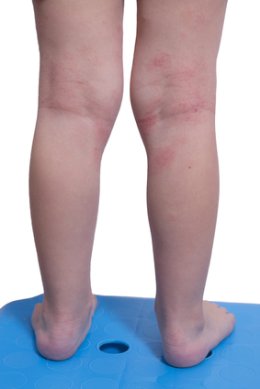 Fewer children have eczema around the age of 12 months if their mothers had higher levels of a particular B vitamin during pregnancy, according to a new study from the University of Southampton.
Fewer children have eczema around the age of 12 months if their mothers had higher levels of a particular B vitamin during pregnancy, according to a new study from the University of Southampton.
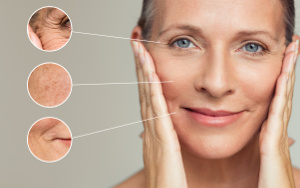
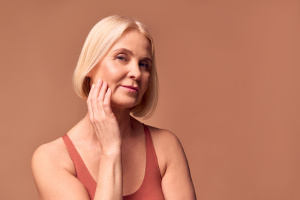 The condition of our skin means a lot to our appearance and health, and being deficient in one or several nutrients can cause premature skin ageing. Also, things like poor wound healing, acne, herpes infections, yeast infections, eczema, psoriasis, and other skin disorders may occur. In a review article published in Medicina, scientists have looked at the role of vitamins A, C, E, D, and biotin plus omega-3 fatty acids in skin health. Studies suggest that selenium and zinc may also be important for healthy skin and anti-ageing. If you don’t get enough of these nutrients or if you simply have an increased need for them, you may consider taking a supplement.
The condition of our skin means a lot to our appearance and health, and being deficient in one or several nutrients can cause premature skin ageing. Also, things like poor wound healing, acne, herpes infections, yeast infections, eczema, psoriasis, and other skin disorders may occur. In a review article published in Medicina, scientists have looked at the role of vitamins A, C, E, D, and biotin plus omega-3 fatty acids in skin health. Studies suggest that selenium and zinc may also be important for healthy skin and anti-ageing. If you don’t get enough of these nutrients or if you simply have an increased need for them, you may consider taking a supplement. Considerably fewer cases of melanoma are found among people who take vitamin D supplements regularly compared with those who don’t. This was demonstrated in a new Finnish study that is published in Melanoma Research. The study supports earlier research that shows that lack of vitamin D doubles your risk of dying of melanoma.
Considerably fewer cases of melanoma are found among people who take vitamin D supplements regularly compared with those who don’t. This was demonstrated in a new Finnish study that is published in Melanoma Research. The study supports earlier research that shows that lack of vitamin D doubles your risk of dying of melanoma. Photodynamic therapy is a kind of light therapy that is used to treat skin cancer, psoriasis, and other skin diseases. According to a review article published in Nutrients, vitamin D supplementation can improve the outcome of the treatment. In fact, vitamin D appears to have several positive effects on skin health. Taken in large doses, the vitamin can even repair skin damage caused by sunburns.
Photodynamic therapy is a kind of light therapy that is used to treat skin cancer, psoriasis, and other skin diseases. According to a review article published in Nutrients, vitamin D supplementation can improve the outcome of the treatment. In fact, vitamin D appears to have several positive effects on skin health. Taken in large doses, the vitamin can even repair skin damage caused by sunburns.
 Our ability to absorb zinc is reduced with age, and many older people lack zinc, even though there is plenty of zinc in the diet they eat. The trace element is involved in over 1,000 enzyme processes and is also an important antioxidant that protects our cells. Even minor zinc deficiencies can speed up ageing processes and contribute to skin and hair problems, infections such as bladder infections, chronic inflammation, elevated blood pressure, cancer, and other diseases. People with unhealthy diets, vegetarians, vegans, and older people are at particularly vulnerable. Certain types of medicine that many seniors take can also increase the risk of a zinc deficiency.
Our ability to absorb zinc is reduced with age, and many older people lack zinc, even though there is plenty of zinc in the diet they eat. The trace element is involved in over 1,000 enzyme processes and is also an important antioxidant that protects our cells. Even minor zinc deficiencies can speed up ageing processes and contribute to skin and hair problems, infections such as bladder infections, chronic inflammation, elevated blood pressure, cancer, and other diseases. People with unhealthy diets, vegetarians, vegans, and older people are at particularly vulnerable. Certain types of medicine that many seniors take can also increase the risk of a zinc deficiency.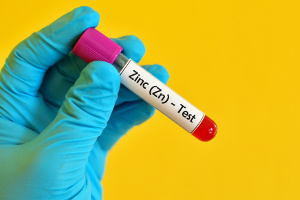 Zinc supplements have been given to patients with acne for years because of the anti-inflammatory properties of the nutrient. Still, it remains unclear whether zinc also helps treat other inflammatory skin diseases. Therefore, a group of scientists wanted to look closer at this and they discovered that zinc supplementation may be useful in the treatment of atopic dermatitis and diaper rash. Local treatment with zinc salve may also help.
Zinc supplements have been given to patients with acne for years because of the anti-inflammatory properties of the nutrient. Still, it remains unclear whether zinc also helps treat other inflammatory skin diseases. Therefore, a group of scientists wanted to look closer at this and they discovered that zinc supplementation may be useful in the treatment of atopic dermatitis and diaper rash. Local treatment with zinc salve may also help.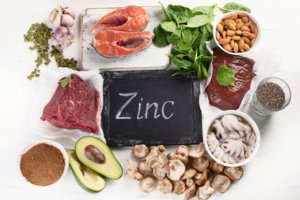
 "After about one week of taking the Q10 supplement I could feel a huge difference," says 23-year old Alan Piccini, who has been suffering from extreme fatigue and muscle aches ever since he was a child.
"After about one week of taking the Q10 supplement I could feel a huge difference," says 23-year old Alan Piccini, who has been suffering from extreme fatigue and muscle aches ever since he was a child. “Taking capsules with co-enzyme Q10 has freed me of the severe side effects of my cholesterol lowering medicine,” Mrs Franken explains.
“Taking capsules with co-enzyme Q10 has freed me of the severe side effects of my cholesterol lowering medicine,” Mrs Franken explains.